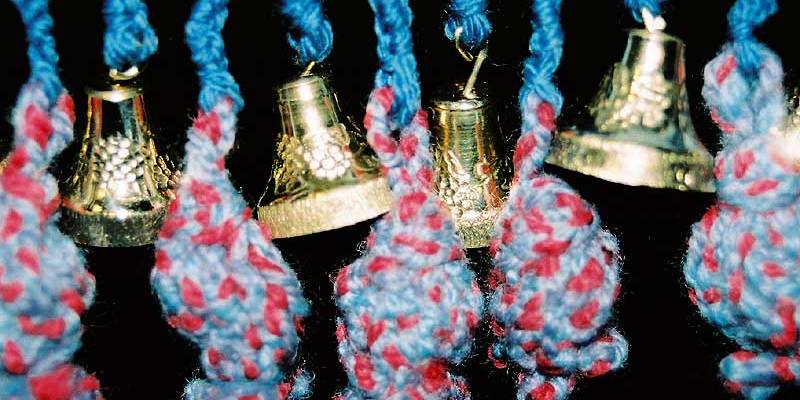Many commentators have discussed the ban on rips and tears in the priestly garments and what they represent.
By Rabbi Ari Enkin, Rabbinic Director, United with Israel
This week’s Torah portion is the double reading of “Vayakhel-Pekudei” (Exodus 35:1-38:20), and with it we conclude the construction of the Tabernacle as well as the Book of Exodus. The reading once again gives a review of the garments the priests and high priests would wear when officiating in the Tabernacle.
In this article, we will focus on the robe of the High Priest and one of its lesser-known requirements.
It is not widely known that the High Priest’s robe was made with extra enforced lining around its neck to better ensure that the robe would not tear. Indeed, a rip or tear in any of the priestly garments was considered to be a severe violation of law, as the Torah says “it must not tear” (Ex. 39:23), and hence, measures were taken to best ensure that this would never happen. The priestly garments were also required to always be clean.
On a side note, we see that the garments of the priests were considered to be independently holy items, similar to most other objects of extreme holiness.
Many commentators have discussed the ban on rips and tears in the priestly garments. It is noted that the ban is first introduced and only directly mentioned in connection with the robe. It is explained that all the priestly garments represent, among other things, our character traits.
Just as a priest was required to wear the special garments while serving God in the Tabernacle (and later the Holy Temple), so too we must perform our service of God while ‘wearing’ our finest character traits. If we conduct ourselves in an unfriendly, arrogant or dishonest manner when we perform mitzvot (Torah commandments), then our service is invalid and unacceptable – just like the service of a priest should he not be wearing the required garments.
With this thought in mind, we can better understand the ban on allowing any of the garments to rip and how this can relate to us nowadays. We must ensure that our character traits are of the highest possible level and not allow them to be tainted or corrupted. Both in our service of God and in general, we must be sure to remain honest, kind and well-mannered in all settings and under all circumstances. These qualities are our “garments.” We must not allow them to “rip” or be “soiled.”
With these thoughts, we can better understand why the neck of the robe was explicitly singled out for the requirement to have enforced lining. It is explained that the Torah introduced the prohibition against tearing the priestly garments in the context of the robe’s neckline because it is the area of a garment that is most susceptible to tearing.
As mentioned, the ban on tearing applied to any part of any of the priestly garments, but it introduces the ban in the context of a specific place most likely to tear. This idea represents the need for us to take special precaution in areas of our behavior and character traits that might be susceptible to weakness. We must frequently make a personal accounting of our character traits and our behavior and identify to ourselves where we need to improve.
We must always enforce our good character traits and never let them ‘tear.’
For more insights on this Torah portion by Rabbi Enkin, click on the links below.
https://unitedwithisrael.org/living-torah-how-orthodox-judaism-views-women/
https://unitedwithisrael.org/living-torah-the-obligation-to-give-thanks/
https://unitedwithisrael.org/living-torah-a-good-name/
Send Passover Packages to Needy Israeli Soldiers - Bring Them Joy!
We are honored to thank the young men and women of the IDF who risk their lives every day to protect the citizens of Israel. Since October 7th, soldiers have been on the battlefield for months - many are hoping to come home for Passover.
Join us in sending Passover food packages (and personal notes) to Israeli soldiers and their families.
Many soldiers spend the Passover holiday with needy families back home. The soldiers greatly appreciate your love and concern. Bring them Passover joy!
CLICK HERE TO SEND YOUR PACKAGE AND NOTE TO ISRAELI SOLDIERS!




